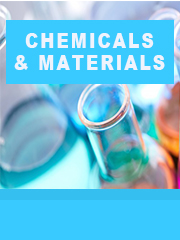TOP CATEGORY: Chemicals & Materials | Life Sciences | Banking & Finance | ICT Media

Download Report PDF Instantly
Report overview
Chemical Method Acrylamide refers to acrylamide produced through chemical synthesis, typically involving the hydration of acrylonitrile. This method is traditional and remains the most common for large-scale acrylamide production due to its cost-effectiveness and efficiency. In the context of the Chinese market, Chemical Method Acrylamide is indispensable, supporting critical industries such as water treatment, enhanced oil recovery, and paper making.
The China Chemical Method Acrylamide market size was valued at US$ 642.3 million in 2024 and is projected to reach US$ 852.7 million by 2030, at a CAGR of 4.8% during the forecast period from 2024 to 2030.
Historical data indicates steady growth driven by increasing demand across various sectors. In 2023, China produced approximately 920,000 metric tons of acrylamide via chemical methods, accounting for 95% of total production.
Key consumers of Chemical Method Acrylamide in China include:
Water Treatment Sector: Represents 48% of total demand, driven by growing municipal and industrial water treatment needs.
Enhanced Oil Recovery (EOR): Accounts for 23%, supported by the expansion of China’s petroleum industry.
Paper Making Industry: Constitutes 18%, driven by increased demand for high-quality paper products.
Drivers
Industrial Growth: The rapid expansion of industries requiring water treatment polymers, particularly in urbanized regions, significantly boosts demand.
Technological Advancements: Innovations in catalysts and reaction efficiency have led to yield improvements of up to 98%, while reducing energy consumption by 15% compared to 2020 techniques.
Eco-Friendly Initiatives: The adoption of low-waste chemical synthesis methods, growing at 6% annually, aligns with stricter environmental regulations.
Restraints
Environmental Concerns: Acrylamide production involves hazardous substances, necessitating stringent compliance with safety standards.
Raw Material Price Volatility: Fluctuating costs of acrylonitrile impact overall production expenses and profit margins.
Opportunities
Advanced Material Applications: Acrylamide-based hydrogels, used in medical and agricultural applications, are growing at a 12% CAGR, albeit from a small base.
Automation Investments: Investments in automated systems, up 25% in 2023, improve safety and reduce production risks, presenting opportunities for manufacturers.
Challenges
Environmental Regulations: Compliance with evolving safety and emission standards increases operational costs.
Global Competition: The rise of alternative production methods and materials in international markets poses a competitive threat.
China’s Chemical Method Acrylamide production is concentrated in industrial hubs like Jiangsu, Shandong, and Guangdong provinces. These regions benefit from established chemical manufacturing bases and proximity to end-user industries. Coastal areas play a pivotal role in exports, particularly to Southeast Asia and Europe, which demand cost-effective and high-quality acrylamide products.
Zibo Xinye Chemical Co., Ltd.
Shandong IRO Acrylamide Co., Ltd.
Beijing Hengju Chemical Group Corporation
Jiangxi Changjiu Agrochemical Co., Ltd.
Liaocheng City Yongxing Environmental Protection Material Co., Ltd.
Xitao Polymer Co., Ltd.
Shandong Shuiheng Chemical Co., Ltd.
Puyang Shengyuan Energy Technology Co., Ltd.
Mitsubishi Chemical Corporation (China operations)
Kemira (China operations)
These companies focus on innovation, efficiency, and sustainable production practices to maintain their competitive edge. Collectively, they dominate the domestic market and cater to significant export demands.
Water Treatment: The largest segment, representing 48% of demand, driven by stringent water quality standards and urbanization.
Enhanced Oil Recovery: Constitutes 23%, supported by China’s investments in petroleum sector advancements.
Paper Making: Accounts for 18%, leveraging acrylamide’s role in enhancing paper quality and production efficiency.
Other Applications: Includes mining, textiles, and specialty chemicals.
Acrylamide Solution: Predominantly used in water treatment and oil recovery applications.
Acrylamide Crystals: Preferred for specialty applications requiring high purity.
The major players listed above dominate the market through strategic investments in R&D, automation, and sustainability. Their efforts in adopting greener processes and enhancing product quality align with global trends and regulatory demands.
Domestic consumption dominates, with exports primarily targeting Southeast Asia, Europe, and North America. China’s industrial hubs, such as Jiangsu and Shandong, play a critical role in production and distribution due to their robust infrastructure and proximity to raw material sources.
1 What is the current market size of Chemical Method Acrylamide in China?
2 Which are the key companies operating in the Chemical Method Acrylamide market?
3 What are the key growth drivers in the Chemical Method Acrylamide market?
4 Which regions dominate the Chemical Method Acrylamide market in China?
5 What are the emerging trends in the Chemical Method Acrylamide market?
Key Indicators Analysed
Customization of the Report: In case of any queries or customization requirements, please connect with our sales team, who will ensure that your requirements are meet.